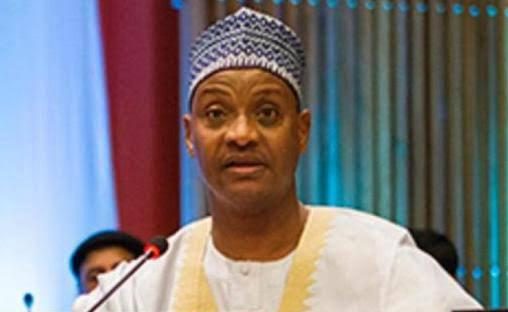The sociology of the “Northern Question” in Nigeria: A fundamental reasoning on some salient issues(2), by Usman Sarki
“Let us by all means be up and doing, setting the world to rights and sounding our own trumpets”– John Buchan
The idea that Nigeria and its inhabitants can be grouped into clusters of South-Westerners, South-Southerners, South-Easterners, Middle Belters and Indigenous Minorities on one side and pitted against “Northerners” on the other side, makes for a farcical or comical reflection of the national situation were it not for the grave and existential implications of such devious divisions based on irrational contrivance of misplaced identities and distorted exercise of freedoms of expression and speech.
In the exercise of such freedoms, or rather more within the latitudes of their abuse, every conceivable outrage is perpetrated in the name of democracy and the right of speech, thereby creating and exacerbating the grounds for conflicts and alienation in Nigeria driven by the stoking of the embers of separatism, ethnicity, religion and regionalism.
The charged atmosphere created in the build-up to the so-called National Conference in 2014 and the mutually antagonistic situation in which it was hastily convened and ignominiously dispersed, should awaken Nigerians to the dangers of politics of exclusion and deterministic ideology around the questions of ethnic or enclave prerogative that have reduced our compass of understanding of one another, and heightened the ill-feelings amongst Nigerians of various backgrounds and origins towards each other.
As we progress into the 21st century, and as the world moves on around principles of economic efficiency and amelioration of national contradictions in favour of global outlooks and advances offered by opportunities in financial, technological and scientific progress, we in Nigeria cannot afford to make ourselves impervious to these improvements by remaining stymied in enclave rivalries and group contentions that are of no value to our overall growth and consolidation as a nation.
Herein lies the need for genuine accommodation and understanding of one another, if we agree to move forward as one nation and one people under an approved system of democratic governance of our own choice and making. This task becomes more urgent with the permutations going on around the general elections in the country come 2027, where already, certain tendencies of volatile and divisive nature that are contradictory to our federal system and inimical to our unity and cohesion, are being tendered as subjects of discussion in the public space.
The Northern region has invariably and predictably been placed at the centre of this discourse for better or worse. The motives of such actions must be questioned by Nigerians and constructive opinions that unite our people and country together must be put forward as alternative ideas to cement and perfect our unity and consolidate our national progress. In this undertaking, the progressive groups and classes of our country must not remain silent or indifferent.
On the contrary, they must be vocal and active in countering all divisive trends and postures, and articulating and presenting alternative viewpoints to the negative and contentious propositions that are being put forward as solutions to our political challenges and arrangements of our federal system. A promiscuous amalgam of ideas, notions and suppositions, whether true or false, are being put forward around the North and its presumed centrality to politics, governance and other national undertakings in this country. The “Northern Question” today looms menacingly large like the spectre of doom over the entire national panorama. It has become fused into the larger “National Question” by the dint of its perpetual presence and the complexity of its manifestation. This question, which is more like an examination, or a prognostication, is what seems to propel discussion around the arrangement of governance in Nigeria, as well as other issues like the operation of the economy, the conduct of politics, social and cultural matters as well as religious sensitivities.
To deal with this subject satisfactorily, objectivity, impartiality and broad-mindedness in outlook are required, in order to comprehend its dimensions and arrive at a reasonable understanding of its national import. A fundamental reasoning around this “Question” and its ramifications has, therefore, become indispensable. The “Northern Question” predates Nigeria’s independence and remains the main issue today in the arrangements of the state and governance in Nigeria, as well as the determination of policy directions and their wider ramifications. Regardless of the issues, whether they entail the creation of states, the election of a president, enactment of laws, the alterations of the national constitution, the conduct of national census, the adoption of a new national taxation policy, the passage of budgets, or the citing of federal projects, etc, the menacing spectre of the “North” is conjured up, resurrected, thrown into the milieu and made a cause celebre, to discomfiture us and create unnecessary commotion in the national political space.
Rightly or wrongly, Northern Nigeria has been brought under the spotlight of intense scrutiny from various angles and perspectives unlike any other region of the country. These are intended with genuine concern and apprehension by some, but with consistent adversarial motives by many others, who see this part of Nigeria as an unwanted appendage that should either be excised from the body of the country, or cut into pieces and Balkanised and thus, rendered an inert and inconsequential entity.
If the North had not existed, it would have been invented by the fancy or the malice of those seized with its situation to justify their perplexity and curiosity that have characterised the discussions about this region of Nigeria, especially its economic, social and political conditions. To understand this perplexity and curiosity, the aid of the behavioural and cognitive sciences such as psychology and sociology must be brought in to assist in explaining this fixation and attitude towards the North.
The post The sociology of the “Northern Question” in Nigeria: A fundamental reasoning on some salient issues(2), by Usman Sarki appeared first on Vanguard News.
Crédito: Link de origem


